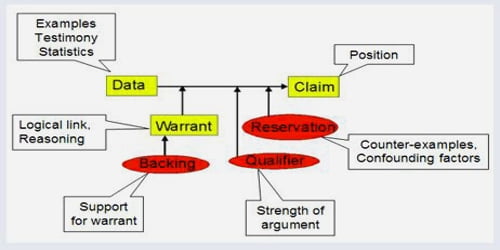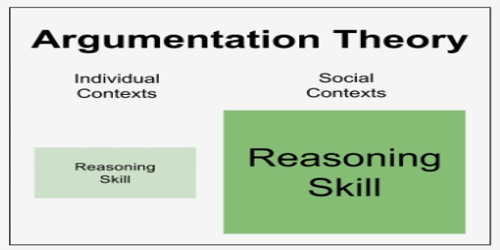Argumentation Theory
Argumentation is a vital factor for communication and it endured in our society for centuries. This includes deliberation and negotiation which are concerned with collaborative decision-making procedures. It also encompasses eristic dialog, the branch of social debate in which victory over an opponent is the primary goal.
Argumentation theory (or argumentation) is the interdisciplinary study of how conclusions can be reached through logical reasoning; that is, claims based, soundly or not, on premises. It includes the arts and sciences of civil debate, dialogue, conversation, and persuasion. It studies rules of inference, logic, and procedural rules in both artificial and real-world settings.
These theories which were put forward by Aristotle were rejected and were questioned by the scholars. They found a broader premise for argument than the formal philosophical systems. During 1960-1970 several scientists such as Mr. Perelman tried to develop the techniques used by the people to get the support of others for their views and opinions. Likewise, many scientists and authors have developed argumentation in different ways.
Argumentation theory cannot be seen as the theory of argumentation. Various authors have used the argumentation theory all in a slightly different way; it is not to say which version is the most developed.

Stephen Toulmin an English philosopher and logician have come up with the elements of arguments which generate categories through which it can be evaluated.
- Claim is nothing but a statement. It is put forward by a speaker or listener in order to accept the information as true. If someone asks you to do something you will not agree to do anything that they want. You need to ask and also you need to know why you have to do it. You will ask them to prove their claim and that is when the ground comes in.
- Ground is the reasoning behind the claim. It can be made up of information used to persuade the listener. It is the base where an argument is made up and it may also have the proof for reasoning. Here information can be a very powerful element of persuasion. Each person has their unique way of thinking as thus has a unique way of accepting information.
- Warrant justifies the claim by making the ground to be appropriate. A warrant can be a small statement or a pursuing argument. It may be accurate, implicit or unspoken.
- Backing – When the backing is given for an argument, it gives additional support to the warrant.
- Qualifier – It restricts the comprehensiveness of the claim. They usually use words such as `most’, `usually’, `always’ and `sometimes’. Another alternative of the qualifier is the reservation. It is a term which might state that the claim is incorrect.
- Rebuttal – Even in a perfectly stated argument there still can use counter-arguments. The rebuttal can be given during the early stages of presentation or through a prolong discourse.
Argumentation theory had its origins in foundationalism, a theory of knowledge (epistemology) in the field of philosophy. It sought to find the grounds for claims in the forms (logic) and materials (factual laws) of a universal system of knowledge. But for argument scholars gradually rejected Aristotle’s systematic philosophy and the idealism in Plato and Kant. They questioned and ultimately discarded the idea that argument premises take their soundness from formal philosophical systems. The field thus broadened.
Karl R. Wallace’s seminal essay, “The Substance of Rhetoric: Good Reasons” in the Quarterly Journal of Speech (1963) 44, led many scholars to study “marketplace argumentation” – the ordinary arguments of ordinary people. The seminal essay on marketplace argumentation is Ray Lynn Anderson and C. David Mortensen’s “Logic and Marketplace Argumentation” Quarterly Journal of Speech 53 (1967): 143–150.
Arguments are given for a statement of a normative nature; Pragmatic argumentation: leading to a statement about the desirability of intended behavior. A position on the desirability of a given action, behavior or measure is advocated on the basis of its advantages and/or disadvantages.
Information Source:
















